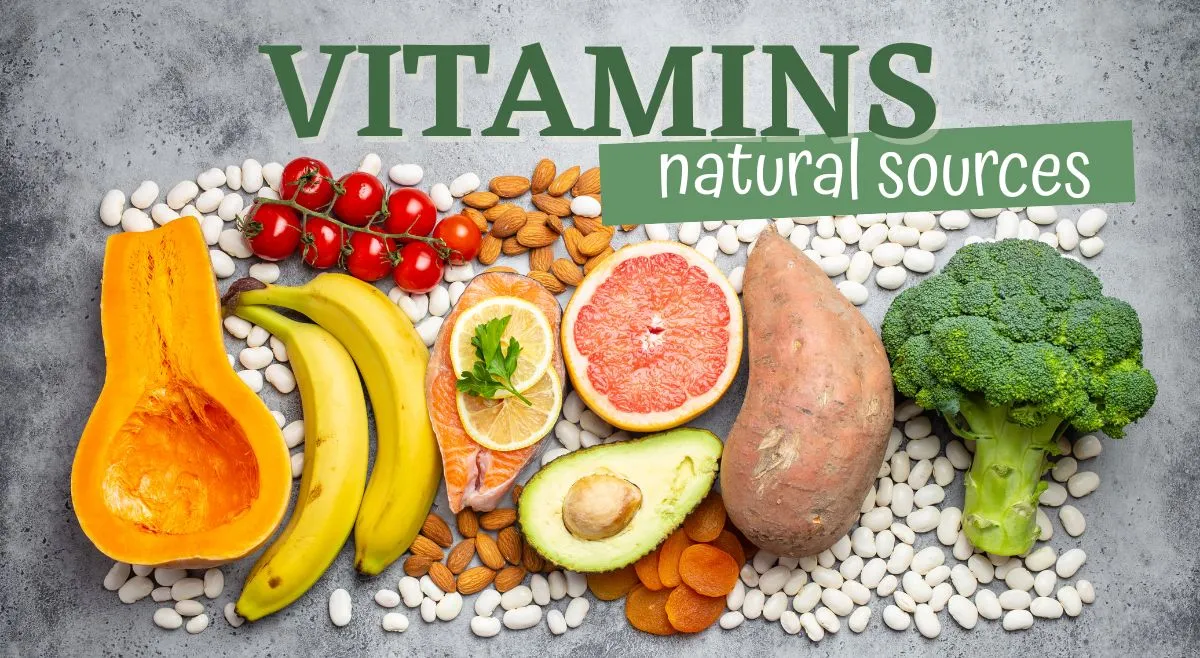- By Ridam Sharma
- Wed, 02 Jul 2025 04:47 PM (IST)
- Source:JND
Vitamins And Their Natural Sources: Vitamins are key nutrients and are much-needed for your overall health, for the smooth functioning of the body. Vitamins are of two categories, fat-soluble vitamins and water-soluble vitamins. Each group has unique sources of food as well as mechanisms for absorption. Knowing the natural food sources of each vitamin can help make the best dietary plan for yourself to embrace mindful and healthy living. To know where to find essential vitamins naturally, here’s a complete list of natural vitamin sources for a healthier you, according to the data by MedlinePlus.gov.
Complete List Of Vitamins And Their Natural Sources:
Also Read: What Is The Role Of Nutrition In Women's Life And Why Is It Important? Know From An Expert
| Vitamin | Major Food Sources |
|---|---|
| Vitamin A | - Dark-colored fruits - Dark leafy vegetables - Egg yolk - Fortified milk and dairy (cheese, yoghurt, butter, cream) - Liver, beef, fish |
| Vitamin D | - Fatty fish (salmon, mackerel, herring, orange roughy) - Fish liver oils (cod liver oil) - Fortified cereals - Fortified milk and dairy products |
| Vitamin E | - Avocado - Dark green vegetables (spinach, broccoli, asparagus, turnip greens) - Margarine (from safflower, corn, sunflower oil) - Oils (same as above) - Papaya, mango - Seeds and nuts - Wheat germ and oil |
| Vitamin K | - Cabbage - Cauliflower - Cereals - Dark green vegetables (broccoli, Brussels sprouts, asparagus) - Dark leafy vegetables (spinach, kale, collards, turnip greens) - Fish, liver, beef, eggs |
| Biotin | - Chocolate - Cereal - Egg yolk - Legumes - Milk - Nuts - Organ meats (liver, kidney) - Pork - Yeast |
| Folate | - Asparagus, broccoli - Beets - Brewer's yeast - Dried beans (pinto, navy, kidney, lima) - Fortified cereals - Green leafy vegetables (spinach, romaine lettuce) - Lentils - Oranges, orange juice - Peanut butter - Wheat germ |
| Niacin (B3) | - Avocado - Eggs - Enriched breads and fortified cereals - Fish (tuna, saltwater fish) - Lean meats - Legumes - Nuts - Potato - Poultry |
| Pantothenic Acid | - Avocado - Broccoli, kale, cabbage family vegetables - Eggs - Legumes, lentils - Milk - Mushroom - Organ meats - Poultry - White and sweet potatoes - Whole-grain cereals |
| Thiamine (B1) | - Dried milk - Egg - Enriched bread & flour - Lean meats - Legumes (dried beans) - Nuts and seeds - Organ meats - Peas - Whole grains |
| Pyridoxine (B6) | - Avocado - Banana - Legumes (dried beans) - Meat - Nuts - Poultry - Whole grains (note: milling/processing removes much of B6) |
| Vitamin B12 | - Meat - Eggs - Fortified foods (soymilk) - Milk and dairy - Organ meats (liver, kidney) - Poultry - Shellfish |
| Vitamin C | - Broccoli - Brussels sprouts - Cabbage - Cauliflower - Citrus fruits - Potatoes - Spinach - Strawberries - Tomatoes, tomato juice |
Also Read: Top 4 Superfoods That Naturally Promote Hair Growth
Important Things To Know About Vitamins:
- Fat-soluble vitamins (A, D, E, K) are absorbed most efficiently with fat in the diet and are stored in the body.
- Water-soluble vitamins (B-complex, C, biotin, folate, etc.) are not stored in excess and require continual replenishment with the proper diet.
- Animal sources of vitamin B12 are absorbed more efficiently than plant sources.
- Processing and refining can deteriorate the vitamin content, especially for B vitamins in grains.
- Also note that most people believe that little is good, but more is better. However, not always, especially in the context of vitamins. Excessive consumption of some vitamins can be toxic to the body. Therefore, always consult an expert to know what is best for you.
The best way to obtain an adequate amount of vitamins is from nutrient-dense foods, which are sourced from plants and animals. This generalised information about the rich natural sources of each vitamin will surely help you to improve your dietary choices and sustain optimal health while reducing the risk of deficiency. This list, along with medical consultation, can help an individual decide which foods and food choices are best for their health.


